Woman left lying on ground ‘like a cockroach’: Fresh hell at Aussie farms
AN Australian woman has told of her near-death experience while working in one of the country’s most dangerous and unregulated jobs.
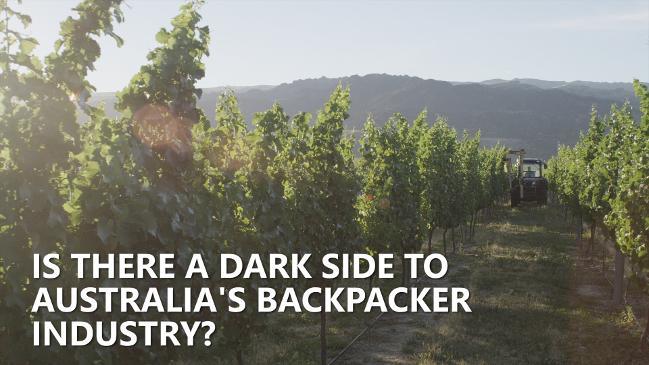
News
Don't miss out on the headlines from News. Followed categories will be added to My News.
SARAH Lupton still vividly remembers the pain after falling three or four metres through the perspex shed roof and landing “like a cockroach” on her back.
The 24-year-old lay on the ground for almost an hour with a collapsed lung, shattered ribs, a laceration to the liver and torn shoulder tendon and internal bleeding, until an ambulance reached the remote farm on the border of Queensland and New South Wales.
“I thought, this isn’t a dream, you’re probably going to die,” she told news.com.au. “The pain was coming from the back of my shoulder, I think it was my ribs breaking and the pressure on my lungs. I was finding it hard to breathe. It was hard not to panic. You go into survival mode, ‘I’ve got to get through this’.”
Six months on, she still suffers from pain in her shoulders and ribs, and has been unable to return to work, instead moving back in with her parents in Adelaide.
The raised outline of two metal plates in her ribs will be a permanent reminder for the young Australian woman of how she could have died doing one of the country’s most unregulated jobs.
There was no training or health and safety checks for the “treacherous” work, but the farm owners acted as though this were normal. Sarah wishes she had questioned it.
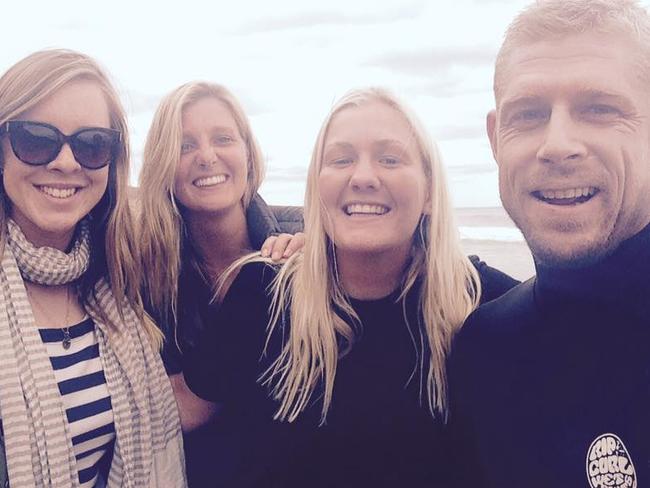
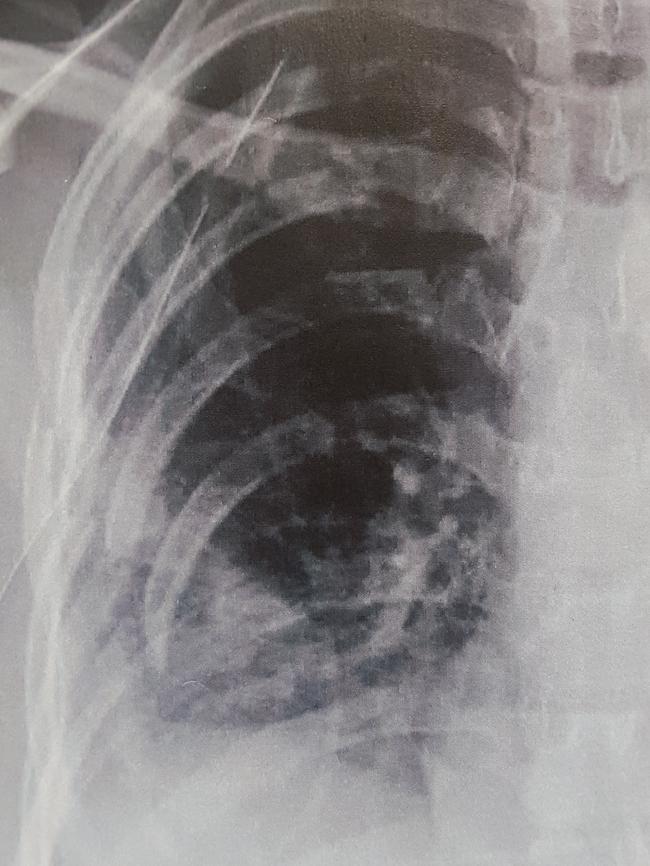
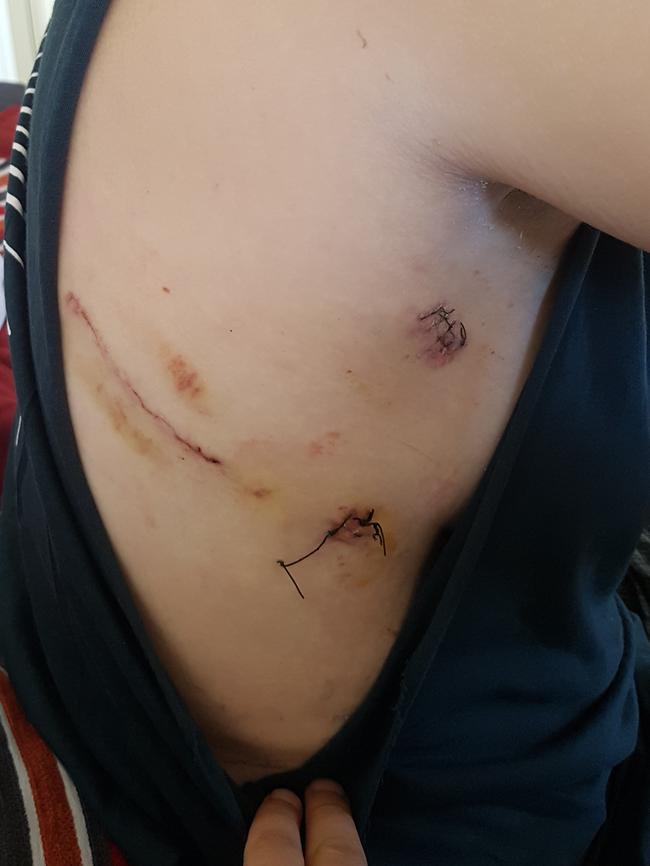
“We were working with chainsaws, chopping down trees ... We built a fence around a sauna,” she said. “Lots of hands-on work we didn’t realise was so dangerous. I guess you just don’t think.
“[The owners] wanted an extension on the shed and got in a retired builder in his 70s.
“I was up a ladder as they were feeding me six-metre sheets of iron over my head as I tried to shuffle them around to the correct way. After this I was told to follow him up to the roof.”
The owner asked them to use some old pieces of corrugated fibreglass sheets, overlapped to git the roof. They were brittle from sitting out in the sun and full of holes that had to be cut off. Sarah was told not to step on the cracked material as she jumped back and forth over a metre-wide gap. That’s when her foot went through the roof.
Her wage at the time was $17.50 an hour, and she typically worked 30 hours for 10 hours’ pay each week — plus food and accommodation.
The conditions she describes are unacceptable and possibly illegal in Australia, but because most people doing such jobs are backpackers from overseas, these practices fly under the radar. Sarah, who moved to Australia from England at 16, was only at the farm because she was with her British girlfriend, who needed to complete her 88 days of agricultural work for a second-year visa. “We looked on Gumtree and found one on the NSW-Queensland border,” she said. “It was ‘get here on this date’, no information on the job. We thought we’d go on a whim in a campervan.”
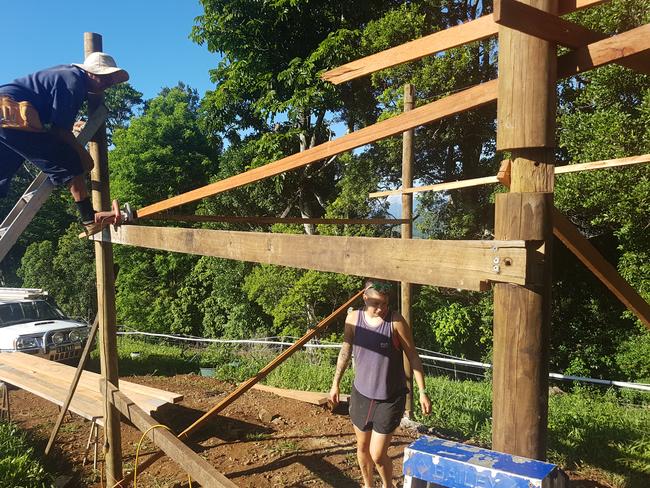
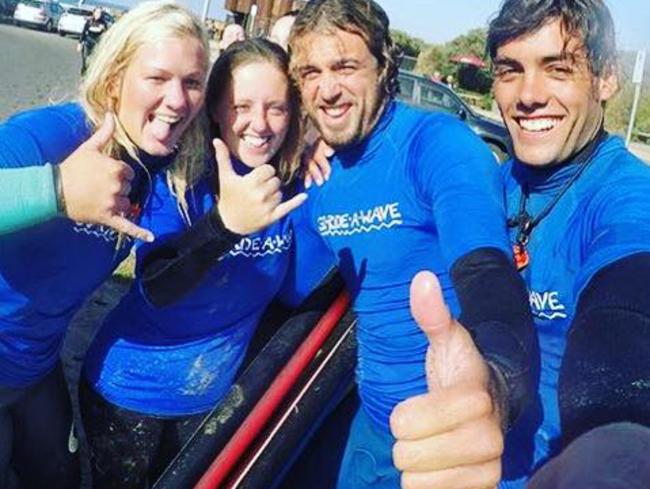
The couple were the only people working at the small farm and bed and breakfast, but Sarah believes there are backpackers there now, even though she posted a warning about the area on a Facebook page. “The accommodation was quite dirty, there were cockroaches everywhere. Overall it was not a nice experience,” she said.
“There’s no guidelines for anyone like that, as long as you’ve got an ABN number. It’s crazy. I think you need to regulate it, there needs to be a system where people feel safe.”
When the adventure turned sour, the couple who owned the farm didn’t want to know. The owner’s first reaction was to ask his wife whether they had insurance, Sarah says, and when her girlfriend returned to collect their belongings and get her work signed off for her visa, he would only confirm 18 out of 28. “It’s not the sort of thing backpackers can argue because they need the days,” she said. “I haven’t heard from them since.”
Sarah was transferred to Gold Coast Hospital after the accident in March, spending 10 days there and an extra week in a hotel before she was well enough for her parents to drive her home, costing the family $6000.
She says the man’s wife later tried to tell WorkCover that she was volunteering unpaid, but she is now receiving her weekly payment. That doesn’t make it easy sitting at home all day, however. “I’ve had some mental health issues, I had really bad anxiety after the accident,” said the former surf coach and ski worker. “I was really worried something bad would happen to my loved ones, and that morphed into depression because I haven’t been able to do the things I love, I haven’t been able to work, I’m just living with my parents at 25.”

Sarah is one of hundreds of seasonal farm workers — many of them young, foreign backpackers — who continue to report shocking conditions at rural properties. Travellers regularly report being underpaid or not paid at all, harassed, sexually assaulted, injured or forced to work in unsafe conditions.
Rosie Ayliffe, from Derbyshire in England, is leading a campaign for improved conditions at farms after her daughter, Mia Ayliffe-Chung, was murdered at a working hostel near Townsville, in Queensland. Sarah believes Rosie’s 88 days and counting website is a vital first step, and wants the Government needs to do more to protect working holiday-makers from exploitation and improve Australia’s reputation as a safe place to visit.
“Every day I think I’m so lucky to be alive after falling from that height, I could so easily have broken my back or hit my head,” she said. “There are so many stories of people hurting themselves.
“These places give such bad experiences, they’ll never come back.”
In 2015-16 the Fair Work Ombudsman actioned 855 dispute forms from 417 visa holders, six per cent of all dispute forms received. It last year completed an inquiry into the experiences of 417 working holiday visa-holders in regional Australia, and found the requirement to do 88 days of regional paid work for a second-year visa was “unintentionally creating an environment where some unscrupulous operators are exploiting overseas workers, who are often reluctant to complain.”
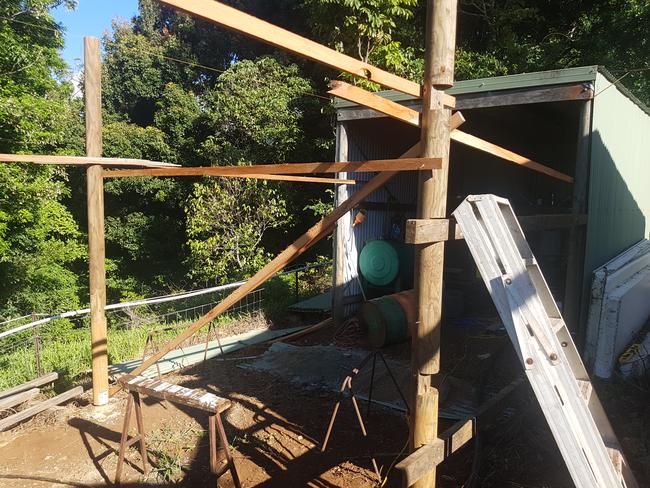
The agency submitted recommendations to the Migrant Worker Taskforce for consideration and established three working groups that will develop options for implementing them. Its Harvest Trail inquiry will be released this year.
NSW Farmers safety spokesperson Matthew Waring said farmers have a legal obligation to provide a safe work environment for employees and have access to information on workplace health and safety.
“The Association has not been made aware of any issues regarding backpackers and breaches of farm safety, however, one workplace accident is one too many and we work closely with workplace safety experts to ensure our members are made aware of best practice procedures,” he said. “Safety is a continual issue across all industries and for all employers. There is no quick fix solution to solve safety issues but we are hopeful that through our partnership with Safework NSW, the agricultural industry in NSW will become one of the safest industries in which to work.”
SafeWork NSW is working with several bodies to develop plans for the high-risk sector to reduce fatalities and injuries. A spokesperson said the agency receives relatively few complaints from backpackers but was aware “agriculture is one of six sectors that workplace injuries and illnesses that need to be prioritised as they pose they highest WHS risks.”
Employees and employers who are unsure about their workplace rights and obligations can seek assistance or file an anonymous report at www.fairwork.gov.au or call the Fair Work Infoline on 13 13 94.
emma.reynolds@news.com.au | @emmareyn
Originally published as Woman left lying on ground ‘like a cockroach’: Fresh hell at Aussie farms


